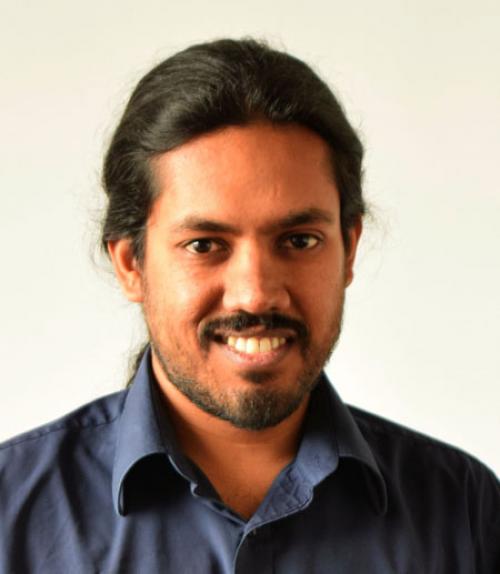Vikram Gadagkar MS ’10, PhD ‘13 was recently awarded a prestigious five-year Pathway to Independence Award from the National Institutes of Health.
The award contains two components; two years of postdoctoral support and three years for faculty support. The objective of the program is to facilitate research independence earlier in an investigator’s career. During the first mentored phase of the program, the recipient completes supervised research and applies for an independent research faculty position. The second part of the program is contingent upon the recipient securing a research faculty position. During the first two years of the program, the award grants the recipient $50,000 each year in salary and $20,000 to cover research costs.
Gadagkar is a postdoctoral fellow in the Department of Neurobiology and Behavior, working with Jesse Goldberg, assistant professor and Robert R. Capranica Fellow. He is interested in how networks of neurons in the brain produce behavior and views computation as the key intermediate link between neural circuits and behavior. Using a combination of awake-behaving electrophysiology in singing birds, advanced cellular-resolution imaging and network models, Gadagkar aims to identify computational principles underlying trial-and-error learning.
During his program, Gadagkar is exploring how performance is evaluated and encoded in the brain; i.e. why we get better with practice. In a simple model of trial and error learning, neurons from a brain area called the “ventral tegmental area,” or VTA, release the neurotransmitter dopamine in response to better than expected outcomes. These neurons encode “reward prediction error,” which means that the dopamine neurons are activated by unexpected rewards and suppressed by lack of expected rewards. He is studying zebra finches to determine how they use a variation of reward prediction error to evaluate the quality of their own song.
Spencer DeRoos is a communications assistant for the College of Arts & Sciences.




